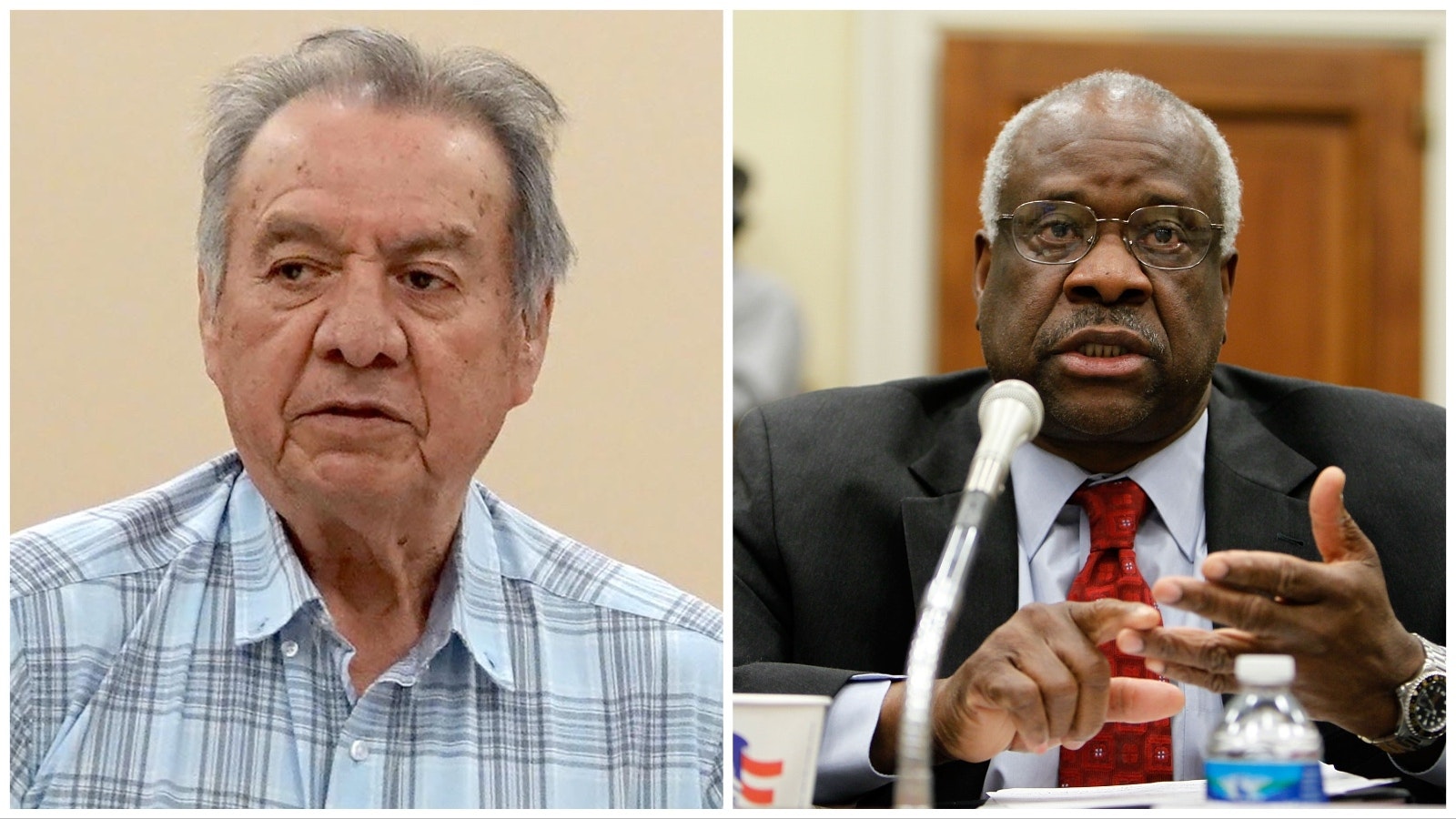To the chairman of the Eastern Shoshone Tribal government, the U.S. Supreme Court’s decision upholding a 45-year-old Indian custody law was a pleasant surprise.
The high court ruled 7-2 on Thursday that the Indian Child Welfare Act (ICWA), which gives tribes power over protective custody cases of American Indian children living on and off of reservations, is constitutional. Petitioners had challenged the law last year, calling it an overreach of Congress’ power and a violation of equal protection rights.
“It was a pleasant surprise,” John St. Clair, Eastern Shoshone Business Council Chairman, told Cowboy State Daily on Friday. “I personally didn’t feel confident that they would uphold the ICWA law.”
The Fifth Circuit federal court had recently eroded part of the law, calling it racially discriminatory against non-natives, but the Supreme Court ordered the Fifth Circuit to vacate that ruling.
And St. Clair was pessimistic last year when the U.S. Supreme Court ruled in Oklahoma vs. Castro-Huerta that state prosecutors can prosecute non-native people who commit crimes against American Indians in Indian Country, such as Wyoming’s Wind River Indian Reservation.
St. Clair called the Castro-Huerta ruling an infringement of tribal sovereignty. It made him doubt ICWA would survive.
Our Existence
St. Clair pointed to the harsh assimilative policies of the federal and other governments that led to ICWA’s passage. Authorities would remove native kids from their families and place them up for adoption with non-native families. Other children were sent to assimilative boarding schools.
“The intent of the Indian Child Welfare Act was to preserve Indian families, keep them together,” said St. Clair. “And the result of that is to preserve our existence.”
Fearing the high court would overturn the federal law, Wyoming in March passed its own state version of ICWA. The state version would have held if the Supreme Court had declared ICWA an overreach of federal power, but not if it had called it racially discriminatory.
As it turns out, the Supreme Court upheld the law altogether.
Had the high court stripped away all but state ICWA versions, then the Shoshone Tribe may have struggled to adjudicate tribal children’s custody cases in states without the law.
But That’s Happening Now
But even with the federal law intact, said St. Clair, some states make it difficult for the tribe to participate in ICWA proceedings of Shoshone children.
“We’ve had a lot of big problems with some states, even when they act as though (the law) is being followed,” he said. “They try to make it as difficult as possible for tribes to utilize the act.”
That resistance isn’t cured with the court’s affirmation, St, Clair said, but at least those states still have to comply with ICWA’s written requirements.
Arapaho Also Ecstatic
The Northern Arapaho Tribe also praised the high court in a Thursday statement, and praised Gov. Mark Gordon and the state legislators who championed the state version of the law.
“Today’s decision by the U.S. Supreme Court to uphold the Indian Child Welfare Act (ICWA) is a landmark victory for child welfare, Tribal culture and our very way of life,” reads the statement. “This ruling marks a rejection of shameful pre-ICWA practices that saw Native children systematically removed from their homes and communities in order to erase our language, culture and practices.”
Chinks For Future Challengers
Justices Clarence Thomas and Samuel Alito were the only dissenters in Thursday’s decision.
Thomas’ dissent appears to invite future challenges.
The petitioners who challenged ICWA failed to discredit the long line of cases the majority cited in its opinion upholding the law.
They also failed to sue the right entities when they were complaining that ICWA is racially discriminatory.
And one of the petitioners, the state of Texas, failed to show that it has standing to make equal-protection complaints at all.
Thomas voiced frustration with the petitioners’ shortcomings, and said he was relieved that Texas is the only state that has fallen short of standing to challenge ICWA.
Other states can still challenge the law.
Federal Authority
The federal government in this case argued that it has the authority to regulate Indians both on and off reservations because of the Indian Commerce Clause of the U.S. Constitution.
Thomas countered, asserting that the commerce clause applies strictly to commodities and trade – not children’s custody cases.
“There is simply no reason to think that there is some sort of free-floating, unlimited power over all things related to Indians,” said Thomas in his dissent.
He said the ability of other states to challenge the law was Thursday's "one saving grace."
Clair McFarland can be reached at clair@cowboystatedaily.com.





